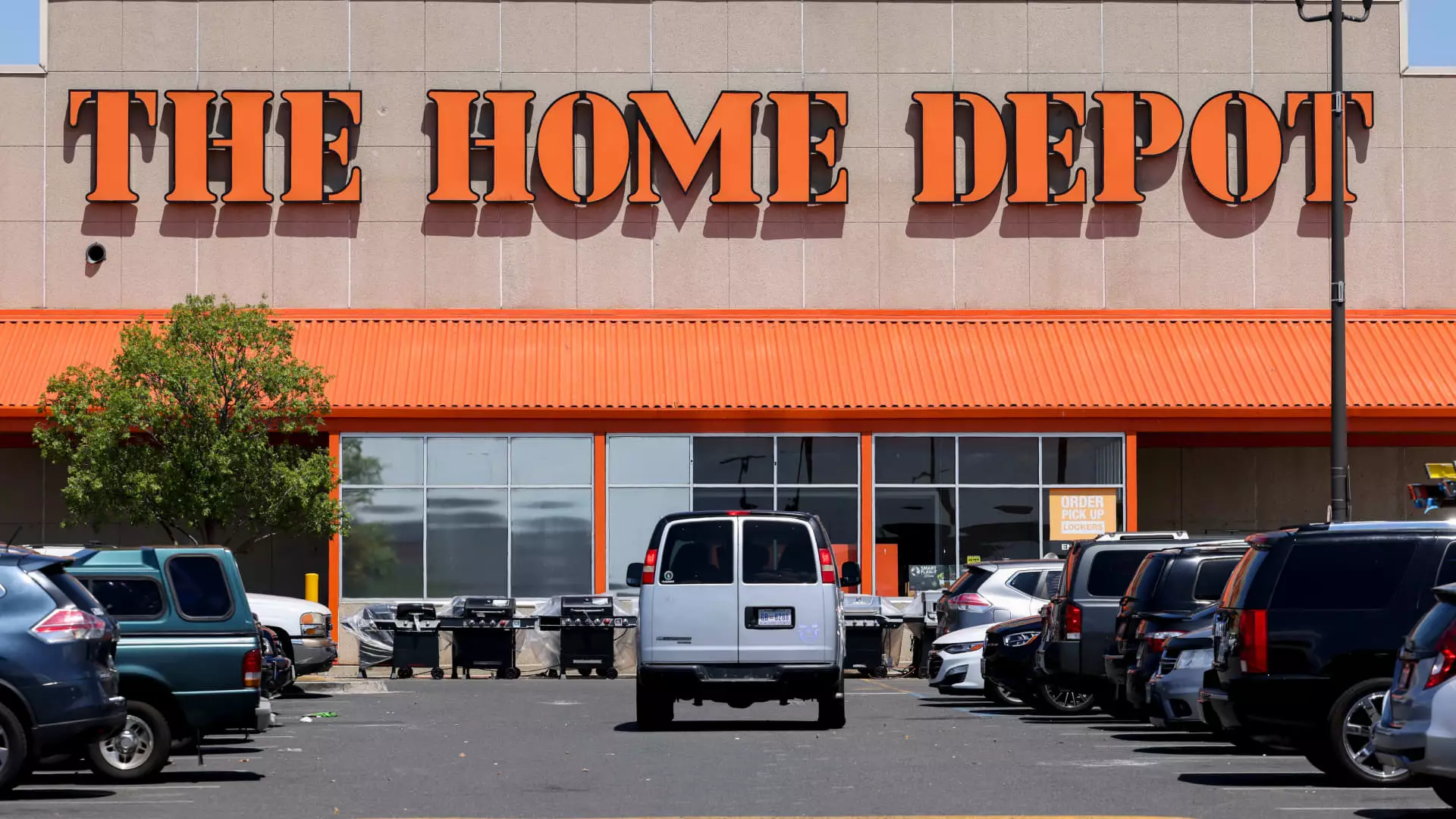Recent analysis from Telsey Advisory Group has sparked optimism regarding Home Depot’s stock performance, leading to an upgrade to a “buy-equivalent outperform” rating. This adjustment is indicative of a proactive approach to potential growth. With the price target raised from $360 to $455 per share—signifying a potential upside of nearly 14%—it’s clear that analysts are confident in Home Depot’s ability to navigate through upcoming market challenges. Despite the anticipation of a “continued softness” in Q3 sales, Telsey forecasts strong earnings and revenue growth in 2025, attributing this to favorable economic prospects such as declining mortgage rates and ongoing hurricane recovery repairs.
Home Depot has a robust position in the home improvement market, and analysts indicate that its fundamentals remain strong, allowing it to gain market share against competitors. Particularly noteworthy is the growth potential in its professional segment, which caters to contractors and larger renovation projects. The ability of Home Depot to expand this sector could translate into significant long-term benefits, showing resilience against broader financial market trends.
A backdrop of economic resilience and moderating inflation provides Home Depot with an advantageous setting for growth. The recent easing of the Federal Reserve’s monetary policy, including a recent interest rate cut, positions the housing market for potential revitalization. Lower mortgage rates typically stimulate housing demand, which is vital for Home Depot’s customer base—comprising home builders and new homeowners needing renovation supplies.
Data indicates that Home Depot’s shares have risen approximately 17% this year, although the stock underperforms compared to the S&P 500’s over 25% gain. Telsey’s endorsement of Home Depot as a stock to outperform the broader market signals that analysts are focusing on long-term performance rather than short-term fluctuations.
Stock performance this week, particularly in the wake of buoyant market sentiment following a swift resolution of national elections, highlights a prevailing optimism in sectors closely linked with home improvement.
Jim Cramer’s analyses reinforce bullish sentiments for Home Depot. He has long posited that the company stands to benefit from easier monetary policies. However, the high bond yields before the recent rate reduction may have muted short-term expectations. Cramer believes that Home Depot’s stock could reach Telsey’s target of $455, provided that investors maintain patience throughout the stock’s performance post-earnings announcement.
Interestingly, Cramer emphasizes the importance of focusing on the company’s outlook rather than immediate quarterly results—an approach that can help mitigate anxiety over momentary dips. By prioritizing the long-term strategic positioning of the company, investors may cultivate a more balanced view amid fluctuating market conditions.
In contrast, Citi’s recent downgrade of Best Buy’s stock, reducing its price target from $115 to $109, sheds light on the retailer’s struggles amidst broader economic currents. Analysts’ caution stems from the anticipated tariffs on imports from China, which could significantly impact Best Buy given its heavy reliance on Chinese-manufactured electronics. The looming specter of tariffs disrupts the positive trajectory that analysts had previously forecasted for Best Buy.
While the ongoing AI-driven tech replacement cycle could provide a boost to earnings, concerns about potential tariffs create a dichotomy in the stock’s outlook. Although Citi maintains a buy rating on Best Buy, the overarching uncertainties suggest a potential headwind that could stifle the company’s growth amidst a changing economic landscape.
Despite these challenges, there remains cautious optimism regarding Best Buy’s ability to leverage a recovery in the housing market. Cramer highlights the potential for rising consumer spending on larger appliances and electronics should interest rates remain low. This dynamic mirrors the potential benefits seen for Home Depot, wherein a revitalized housing market stimulates demand for both building materials and consumer electronics.
Best Buy is set to report quarterly results in late November, and as the investor community watches with bated breath, the focus will likely be on how well it navigates these economic crosswinds.
While Home Depot enjoys a robust outlook bolstered by favorable economic trends and proactive analyst endorsements, Best Buy is grappling with immediate challenges that temper growth projections. As both companies prepare to release quarterly earnings, investors must remain vigilant, discerning potential risks and opportunities accordingly. The movements in these retail stocks underscore the complexity of navigating economic shifts, emphasizing the need for strategic investment approaches based on thorough market analysis.

